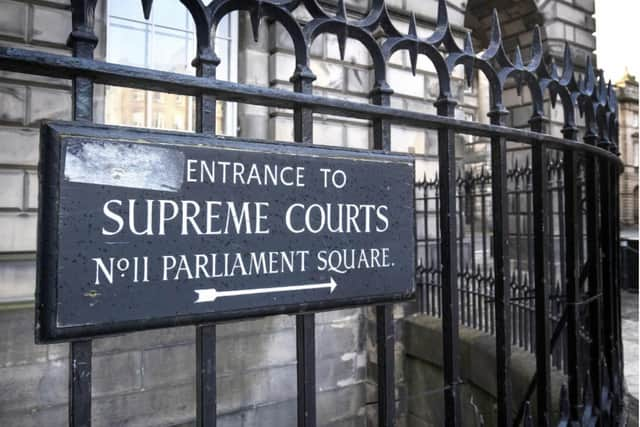The legal challenge over the word 'woman' concludes at the Court of Sessions in Edinburgh
Campaigners For Women Scotland (FWS) raised concerns over the definition of the word "women" in the Gender Representation on Public Boards Act 2018, saying that the use of the term was an attempt to override the Equality Act 2010.
The legislation, which was passed two years ago, aimed to increase the number of women on public boards.


Advertisement
Hide AdAdvertisement
Hide AdIn the Act, they used the term "woman" to represent both born women and trans women, or those who "live as women", which FWS says was legally incompetent.
Both sex and gender reassignment are protected characteristics under the Equality Act.
However, a representative for the Scottish Government, Ruth Crawford QC, has said that the term "woman" as used in the legislation "was limited in its scope", and not as a function of the Equality Act.
Ms Crawford said: "This definition of 'women' is only for use in this act, and not to create a definition in any other legal context.
"This 2018 act does not have applicability to whatever other legislation the Scottish Government may care to produce."
She added: "If the Scottish Parliament is within legislative competence, it has the ability to modify, repeal and amend UK legislation.
Ms Crawford added: "The UK Parliament is unlikely to have a lot of interest in what Scotland does, so far as legislation for the inclusion of trans persons on public boards is concerned."
Aidan O'Neill QC, representing FWS, said: "Positive action measures in the area of equal opportunities are there to protect women's participation in the workplace.
Advertisement
Hide AdAdvertisement
Hide Ad"This legislation, which is unprecedented, can be used in terms of precedent in law in applying to other areas, such as in the census.
"My point is that this has broader repercussions and we cannot just say who is really that bothered? The UK Parliament is not bothered so it's not really a big deal - well I say it is a big deal."
Judge Lady Wise concluded the submissions, saying: "This is an important and very difficult matter. I need to consider it all carefully and will take time to consider all the evidence and give a written opinion when I have reached a conclusion."
A message from the Editor:Thank you for reading this article. We're more reliant on your support than ever as the shift in consumer habits brought about by Coronavirus impacts our advertisers.
If you haven't already, please consider supporting our trusted, fact-checked journalism by taking out a digital subscription.
Comments
Want to join the conversation? Please or to comment on this article.
